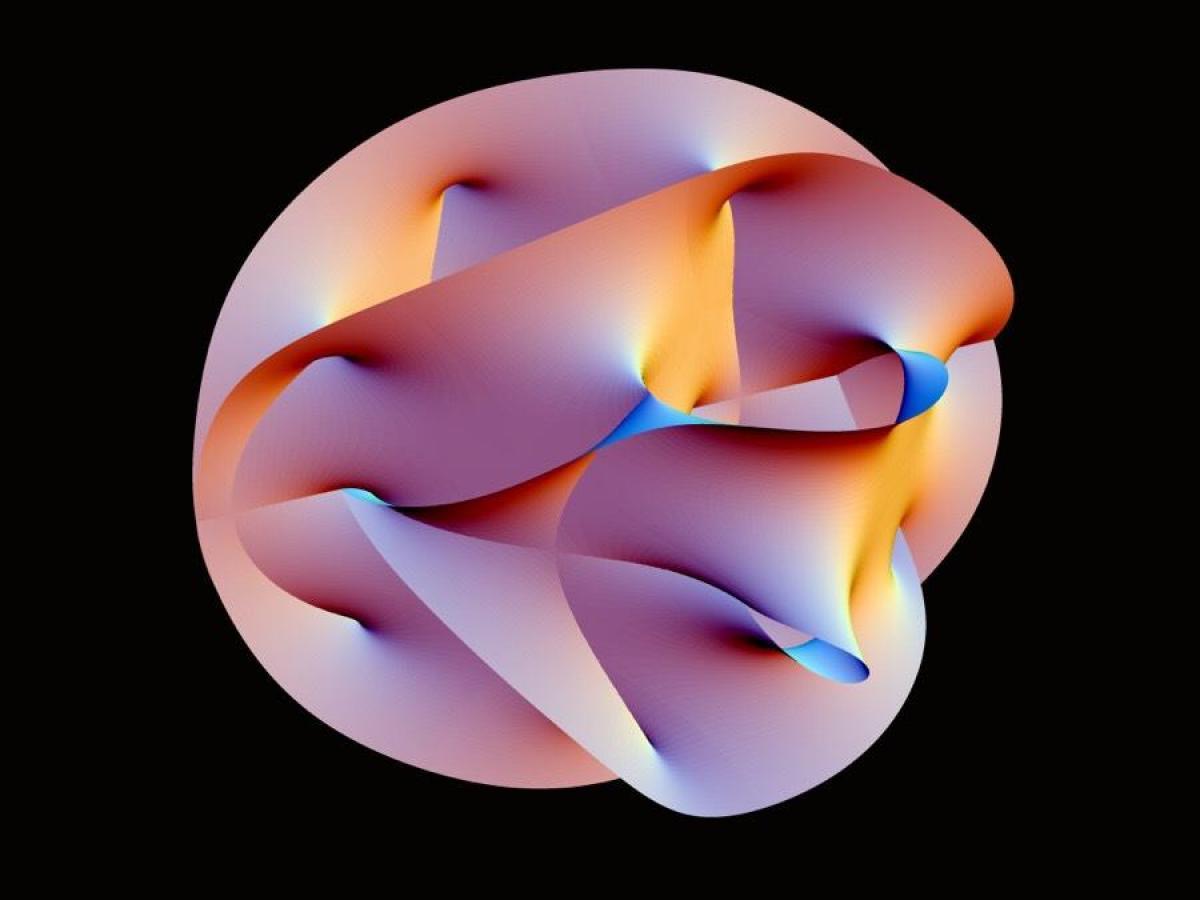Pure Mathematics
Pure Mathematics research involves the study of fundamental mathematical structures to increase our understanding of mathematics itself, and its role in science and technology.

Our Pure Mathematics researchers seek to strengthen the fundamental structures of mathematics by discovering new mathematical results and links to other areas.
Pure Mathematics research is particularly important in the area of physics, with major impact in:
- string theory
- topological phases of matter
- Einstein's general relativity theory
- the relation between classical and quantum mechanics
Our Pure Mathematics research into finite geometry also has important potential applications in cryptography.
-
Research impact
Pure Mathematics researchers in the University’s Institute for Geometry and its Applications focus on fundamental questions in geometry and their relevance to other areas. Geometry lies at the core of modern mathematics, with deep implications in all other mathematical disciplines. If a mathematical problem can be viewed from a geometric angle, we can use geometric intuition to solve it in unexpected ways. This applies, for example, to analysis, cryptography and representation theory.
Symmetry also plays an important role throughout science and mathematics, particularly in geometry, and is underpinned by the mathematical theory of groups. Many of our researchers work on lie theory, the theory of continuous groups of symmetries, such as rotation symmetries.
Higher geometry is a synthesis of classical differential geometry with structures and ideas coming from category theory. Part of the motivation for considering this merger is the physicist’s notion of string theory, which is a possible ‘theory of everything’.
Other areas we are active in include:
- homotopy theory
- complex and geometric analysis
- K-theory and operator algebras
- index theory
In the last decade there has been an extraordinary confluence of ideas in mathematics and theoretical physics, brought about by pioneering discoveries in geometry and analysis. Geometry now pervades modern technology, with medical imaging and information security being just two prominent examples.
The Pure Mathematics research group has received significant recognition for its valuable contributions, including a Laureate Fellowship and several other prestigious awards from the Australian Research Council in recent years. Two group members have won the Medal of the Australian Mathematical Society.
-
Lead researchers
Research team Expertise Dr David Baraglia Differential geometry; algebraic and complex geometry; moduli spaces and gauge theory Dr Sue Barwick Finite projective geometry; unitals; the Desarguesian plane Professor Mike Eastwood Differential geometry; representation theory; several complex variables Professor Finnur Larusson Complex geometry; complex analysis; homotopy theory Associate Professor Thomas Leistner Lorentzian geometry; conformal geometry; lie groups Dr Giorgio Poggesi Partial differential equations; Calculus of Variations; Shape optimisation problems; Free boundary and overdetermined problems.
Dr Danny Stevenson Higher category theory; abstract homotopy theory; gerbes and non-abelian cohomology Professor Mathai Varghese Index theory; noncommutative geometry; mathematical physics Dr Raymond Vozzo Differential geometry; higher geometry; algebraic topology Dr Marcos Orseli Symplectic geometry; toric manifolds; index theory Dr Michael Albanese Differential geometry, complex geometry, Riemannian geometry, algebraic topology To enquire about consulting or working with us on a research project, please contact our lead researcher within the discipline of Mathematical Sciences:
Dr David Baraglia
Senior Lecturer, School of Computer and Mathematical Sciences
Higher degree by research opportunities
Whether you intend to work in research or industry, a higher degree by research can give you a competitive edge throughout your career.
Find out more about studying a Master of Philosophy Master of Philosophy (MPhil) or Doctor of Philosophy (PhD).

